Welcome to “Life at the Orphanage,” a newsletter about life for the 50+ children of Have Faith Haiti. Keep up with me on Instagram and Facebook for surprise details from Haiti
When the 7.2 earthquake struck Haiti two weeks ago, a couple of young Haitians heard about it, read about it, and watched its destruction on TV. But they were not with their brothers and sisters to feel the ground move. They were in America, preparing to go to college.
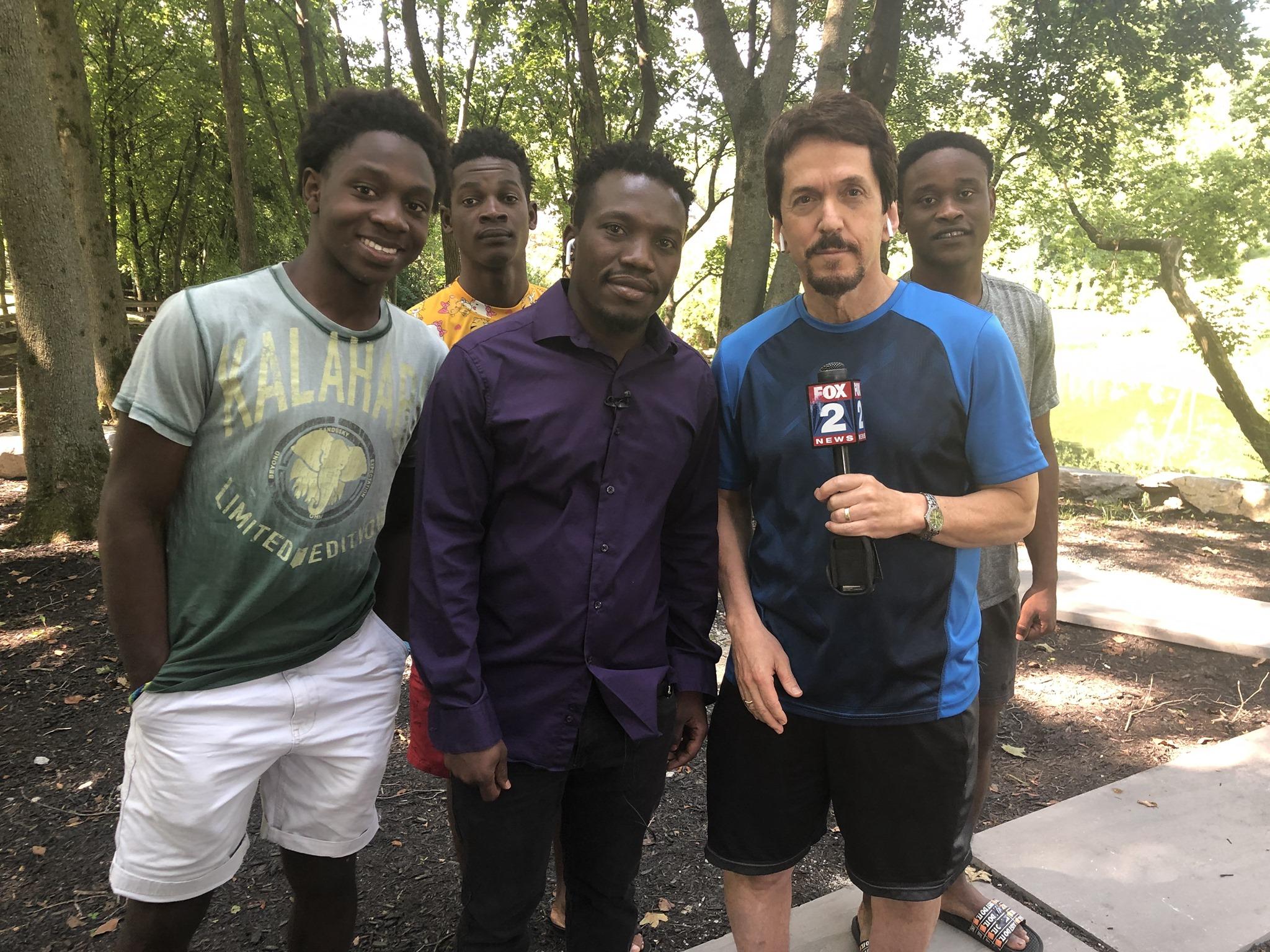
Edney, Jhonas, Siem, and Kiki in Michigan. |
A door opens. Edney Fanfan, 18, and Jhonas Nelus, 20, are the two most recent exports from our orphanage. They, like two others before them, are now in Michigan, attending a school called Madonna University, even as their fellow Haitians are digging out from a disaster. College in America is more than just an option for our kids. It’s their North Star. The pot of gold at the end of their rainbows. Every one of them is trying to get there.
Sunday night, we moved Jhonas and Edney into their dormitory apartment. The possessions they brought from Haiti fit in one bag. The rest — towels, blankets, desk lamps, etc. — my wife Janine and some friends shopped for.
To say in felt strange would be like saying soup is watery.
“Mr. Mitch, can you help me?” Edney said.
I entered the room to see him struggling with a fitted mattress cover.
“How does this go on?’’ he asked.
I helped him stretch it around the edges. Then I helped him put on a top sheet. And a blanket which sort of amused him. Blankets are hardly needed in Haiti, not when the room is steaming with humid air and the concrete walls seem to trap the entire day’s heat.
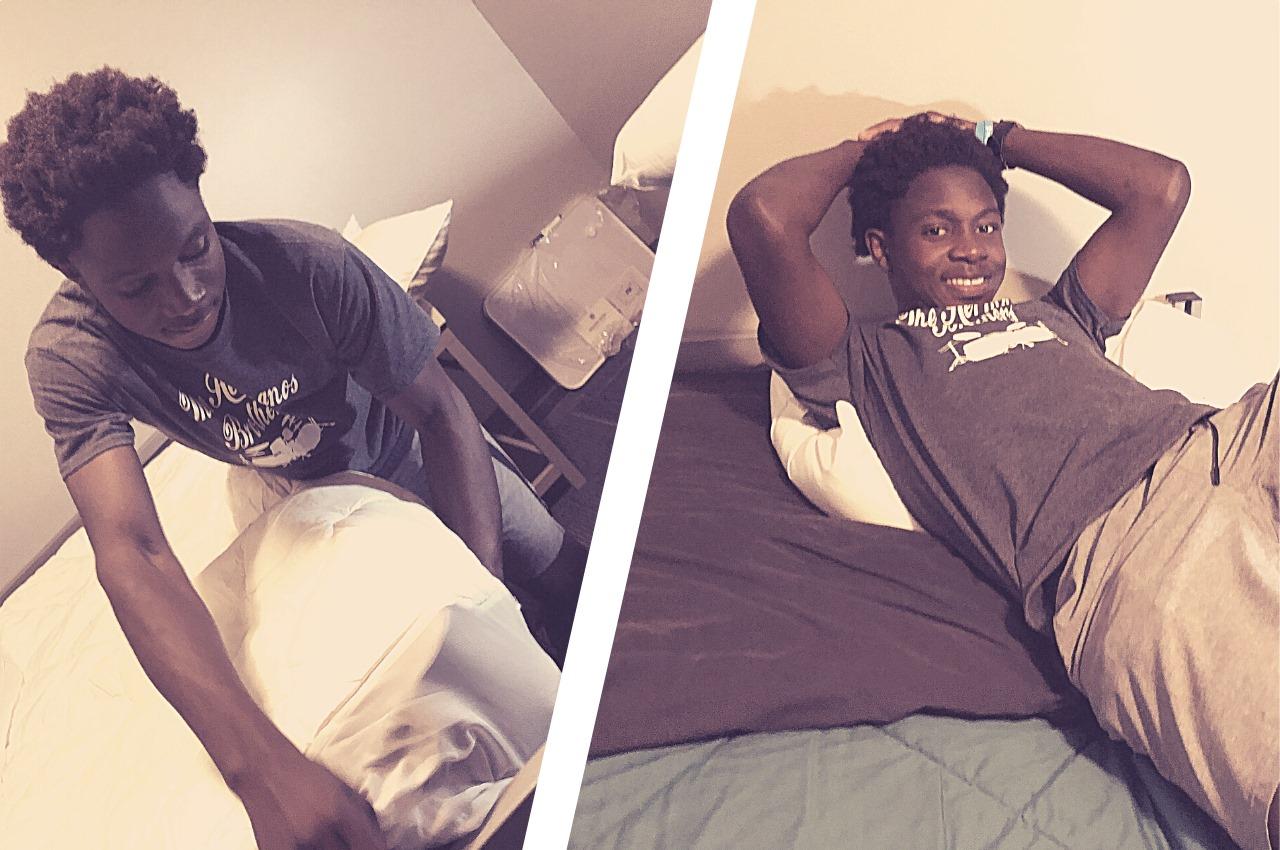
Edney and his new dorm room bed |
We plugged in his desk lamp. We found a spot for his photo frame, which contained pictures of him with his brothers and sisters from the orphanage. He put his pens on the desk and a laundry bag in the closet. That pretty much did it.
I remembered the day I moved into college. I needed family members to help carry a giant trunk. I brought milk crates filled with albums. The biggest thing, it seemed, was where I set up my stereo system and how far apart I could set my speakers. Also, what posters would adorn my walls (John Belushi, Albert Einstein, Rocky.)
With Edney and Jhonas, there were no posters. No stereo system. No speakers. Within half an hour, they were all moved in. Then came the waiting in this strange, spacious place. When you’ve never had a room of your own, you’re not sure what to make of it at first. Gone is the constant drone of conversation, the sight of another person’s dirty clothes, or the snoring at night that proves you are surrounded.
“How do you like sleeping on your own? I will later ask Edney.
‘’It’s kind of lonely,” he will say.
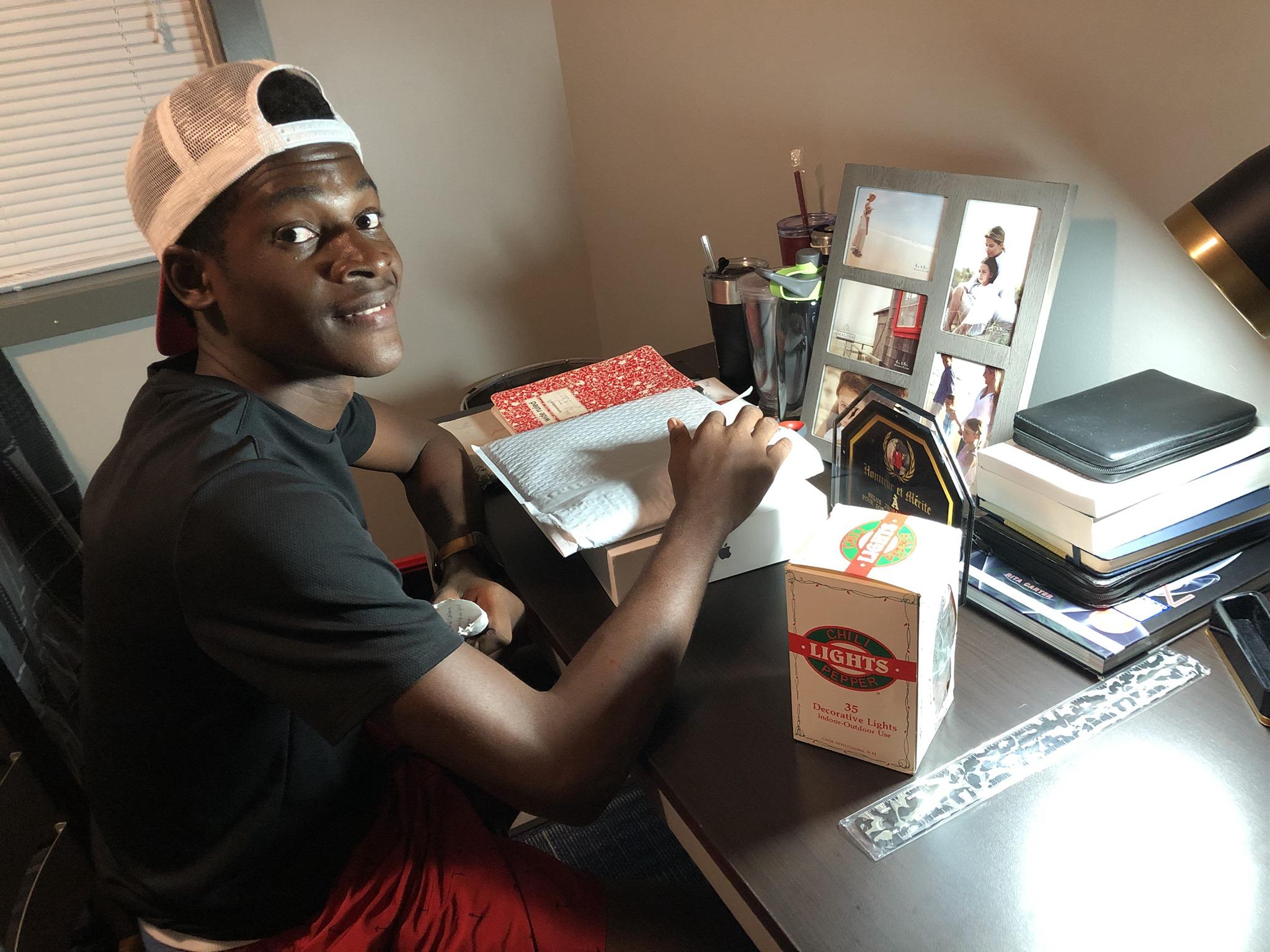
Jhonas at his new desk |
“What are you going to do when you graduate our high school?” I sometimes yell when the kids are gathered in the gazebo.
“Go to college!” they yell back.
“And where will you go to college?”
“Michigan!”
OK. So that last part, I admit, is me being possessive. The transition from sleeping every night with 11 other orphans to having your own bed, mini-fridge and college email account is jolting. It streaks by you, new thing after new thing, like watercolors bleeding into one another. I guess I want to be part of the canvass. The kids come over most weekends, and since the college is nearby, we are able to keep up with their lives and issues.
Only one percent of Haitians ever go to college. Far fewer than that ever leave the country to do so. You will not find large Haitian populations at American universities. But they bring a unique perspective to education, starting with the fact that up to that point, someone had to pay for every class they took. School is not free in Haiti, not even kindergarten or grade school. Since Haiti is the poorest country in the western hemisphere, this means many of its children only go to school sporadically — when there is money to pay for that month — or they never go at all.
So there was no problem getting Edney and Jhonas excited for their classes. They had their schedules memorized. They mapped out where to go. When their alarm clocks went off Monday morning (another new purchase; who needs alarm clocks in an orphanage?) they were up and out the door well before they needed to be.
Two days later, we were packing up supplies to go to Haiti. This trip will be largely about aid, flying to the coastal cities of Jeremie and Aux Cayes, both rocked by the recent earthquake, to tend to the poor families of our children, many of whom lost their dwellings and possessions. Tents for the homeless, food for the hungry, lights for those in the dark, these all filled our garage floor and soon will fill our vehicles on the island.
Against this backdrop, going to college seems like another planet. Yet that’s how it is. Whenever one of our kids comes north for higher education, there is a pull that is beyond homesickness or missing loved ones. It is a pull tinged with guilt, especially when a disaster strikes Haiti, as it too often does. You feel like you are getting a chance to improve your mind with study while your countrymen are just trying to survive the morning.
Siem LaFleur, who I have written about and whose family lost its home in Aux Cayes, is torn between such obligations. He went back down to Haiti the week before school started, returned the day before classes, and will go back to Haiti again this weekend to try and help rebuild his mother’s destroyed home, before returning on Labor Day for classes he knows he can’t miss.
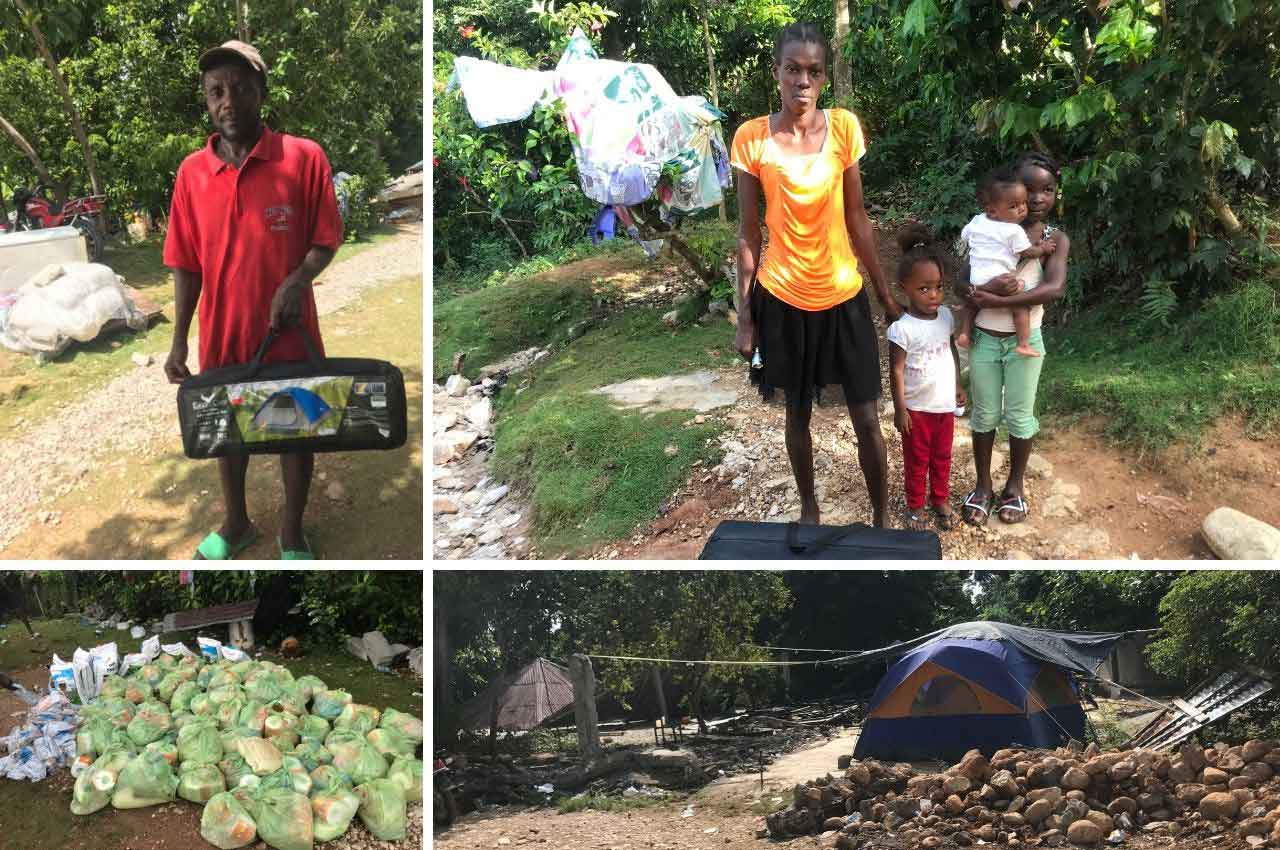
A small portrait of relief packages provided to families in Aux Cayes — food, tents, lighting, and other general supplies — made possible through your ongoing support. Siem led relief efforts last week. More is headed there over the next few days. |
This is the yin and yang of academic opportunity for our kids, all of whom are required to return to Haiti once their degrees have been earned and to work at the orphanage for two years, as a way of giving back.
That last part is easy. They want to come back. Haiti never leaves their hearts, no matter how spacious a dorm room feels, or how impressed they are with Wifi that actually works.
“When you get down there tomorrow,” Edney asks, “can we call you so we can talk to the kids?’’
“Sure,” I say.
He smiles, as if relieved. They say the transition to college is challenging. Try trading 50-plus brothers and sisters for a universe you only imagined weeks earlier. A door opens. You walk through. But it stays open even as you pass, and the voices you left behind beckon you, comfort you, and leave you yearning.
***
Header image: Chapel, Madonna University, via Wikimedia Commons
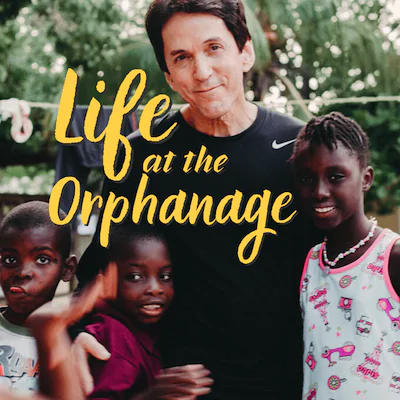
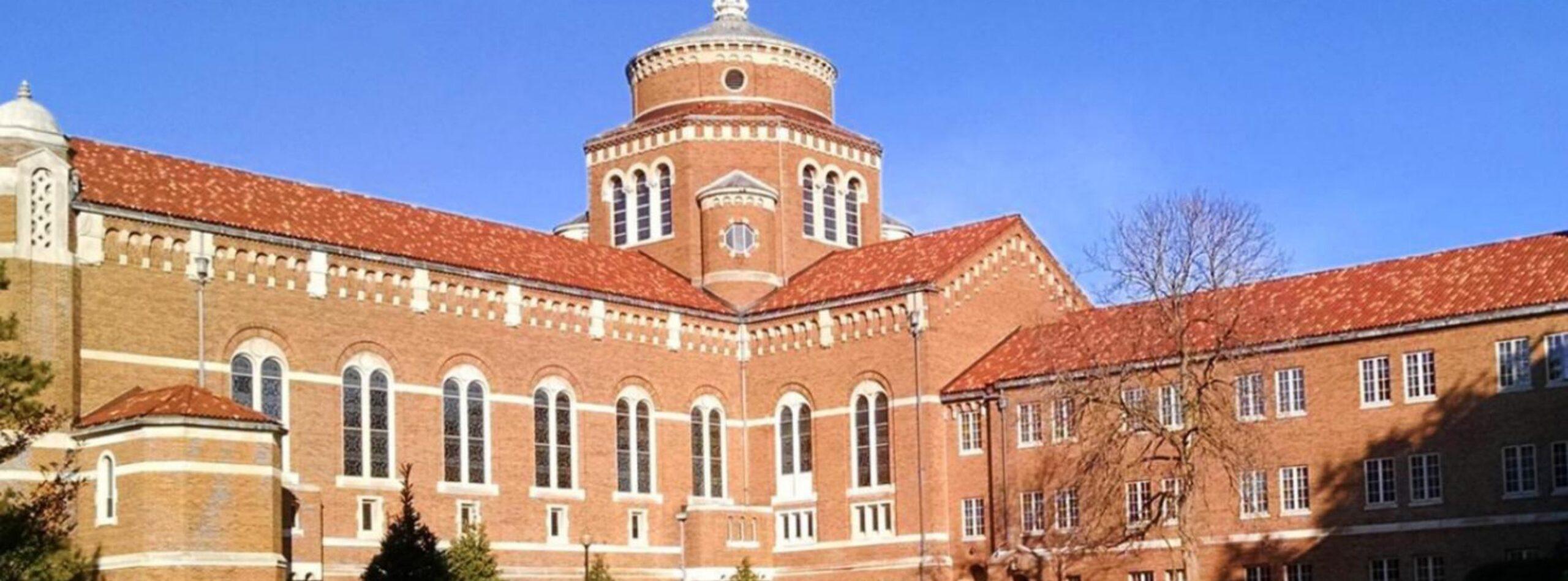

 Join a community of monthly donors
Join a community of monthly donors
0 Comments